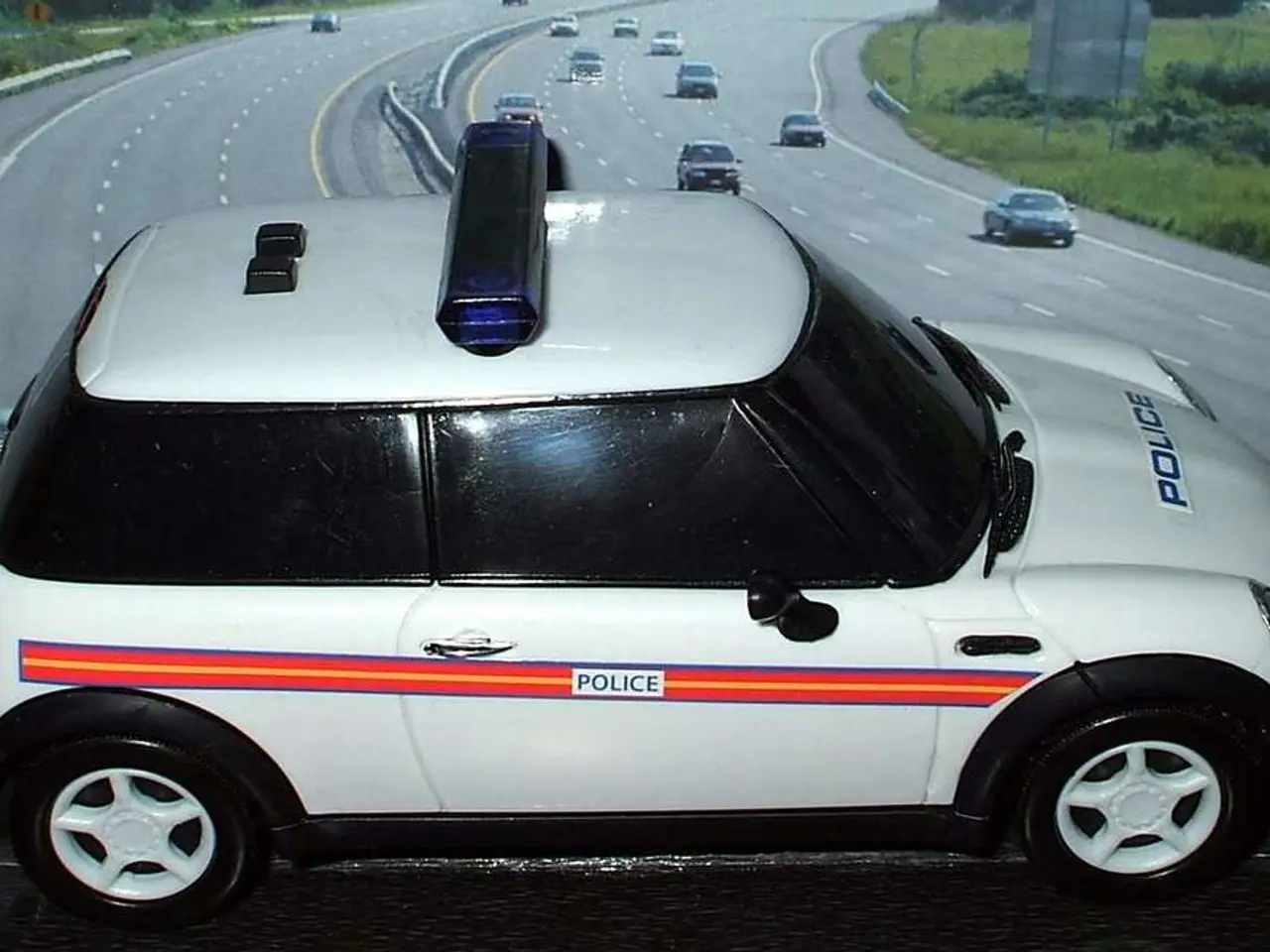Law enforcement associations advocate for broader development of charging stations
In Baden-Württemberg, the expansion of charging infrastructure for electric vehicles (EVs) is a pressing concern, particularly for public institutions such as the police force. The limited availability of quick-charging points and the need for reliable, high-performance solutions suitable for the operational tempo and diverse fleet needs of public services have been identified as key challenges.
The Baden-Württemberg police union, represented by Thomas Mohr and Ralf Kusterer, have voiced their demands for a rapid expansion and accessibility of fast-charging points throughout the region. Strategic locations near police facilities and on commonly used routes are crucial to enable quick turnaround times.
The union also advocates for the use of ultra-fast charging stations with capacities up to 320 kW or more to minimize downtime and keep vehicles mission-ready. They are in favour of dedicated infrastructure for government fleets, similar to the demonstration project in Baden-Württemberg with Toyota Plug-in Hybrids, where tailored charging infrastructure was provided to public institutions.
The union's demands also include support for the transition to battery-electric fleets, as Baden-Württemberg is already emphasizing battery-electric technology for transportation outside railways and public transit. The involvement of financing and operating entities like MVV indicates a demand for public-private partnerships to ensure infrastructure is funded, maintained, and scalable over time.
However, the union has expressed concerns about the current suitability of many EV models for shift duty, immediate deployments, or long distances due to limited range and lack of charging infrastructure. Reports suggest that some patrol cars have had to charge at public charging stations, which can lead to waiting times and occupancy issues.
Minister of the Interior Thomas Strobl (CDU) is set to draw an interim balance today in Rastatt regarding the use of EVs by the police force. The Ministry of the Interior in Baden-Württemberg has already acquired the first purely electrically operated vehicles for the police in 2011, and there are indications that more EVs may be purchased in the future.
Despite these concerns, almost all police stations in Baden-Württemberg have used one of 136 battery-electric service vehicles for 180 days, covering a total of two million kilometers. However, some issues have been reported, such as tires wearing out after 8,000 to 10,000 kilometers, which the union has highlighted as a concern.
In conclusion, the Baden-Württemberg police union's stance reflects a pressing need for comprehensive fast-charging infrastructure expansion that supports operational reliability, regulatory compliance, and economic sustainability. The challenges lie in balancing technological growth with geographic coverage and user-specific demands, all while integrating with broader mobility transition efforts in the region.
- The Baden-Württemberg police union, represented by Thomas Mohr and Ralf Kusterer, are advocating for the installation of fast-charging stations, especially near police facilities and on common routes, as a solution provided by The Agency utilizing technology, to facilitate quick turnaround times for electric vehicles (EVs) used by the police force.
- In order to minimize downtime and keep vehicles mission-ready, the Baden-Württemberg police union supporting the use of ultra-fast charging stations with high capacities (up to 320 kW or more) is a demand that strategically involves technology facilitated by The Agency, considering the growing emphasis on battery-electric technology for transportation outside railways and public transit.




